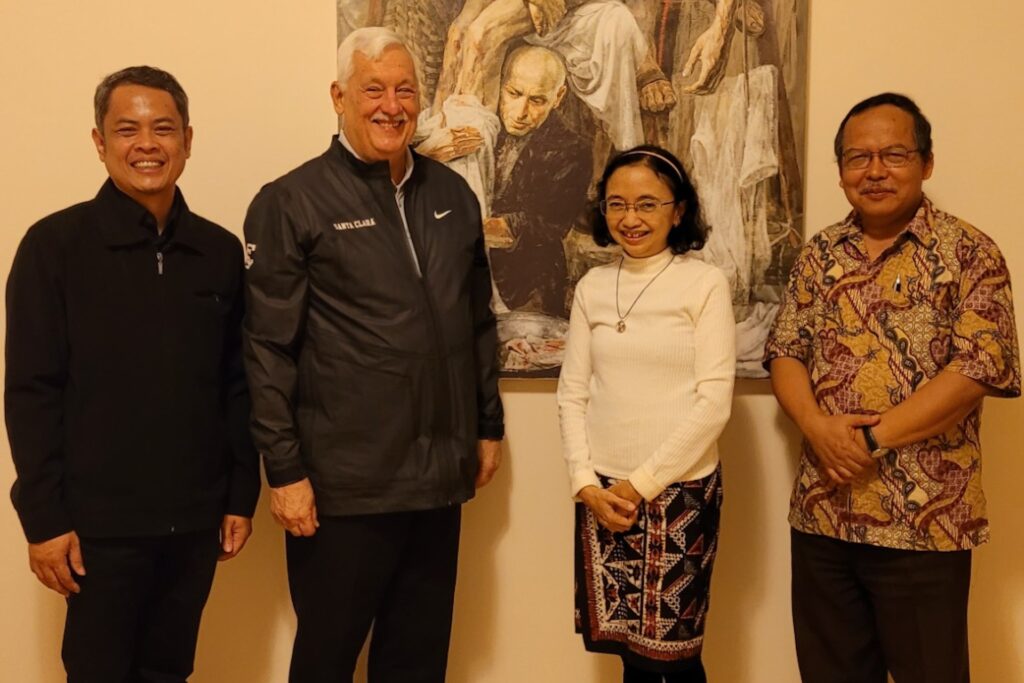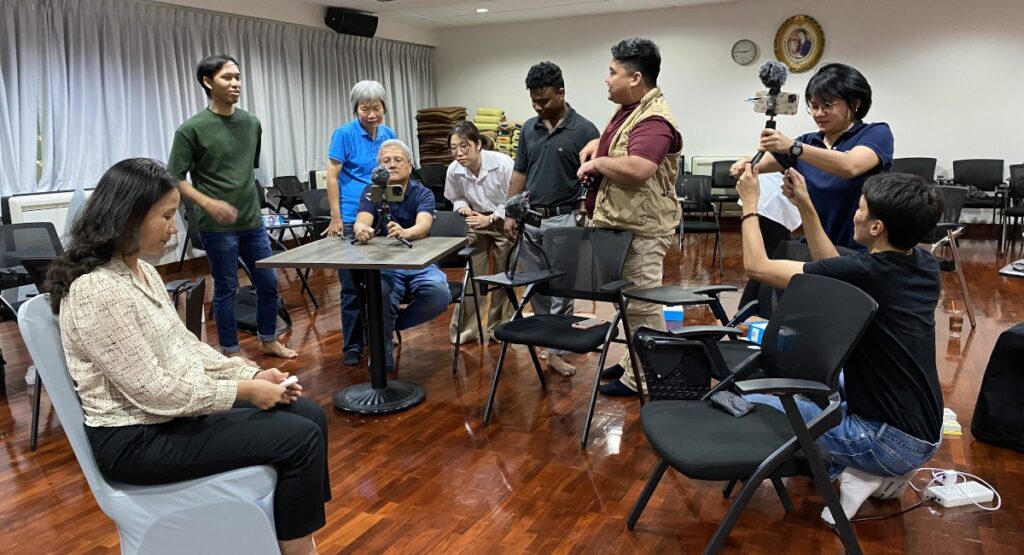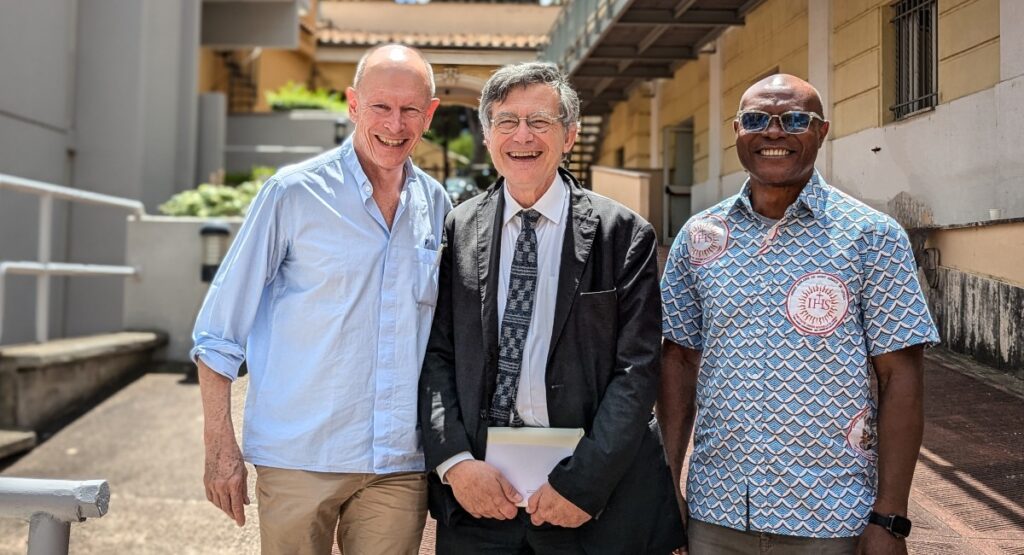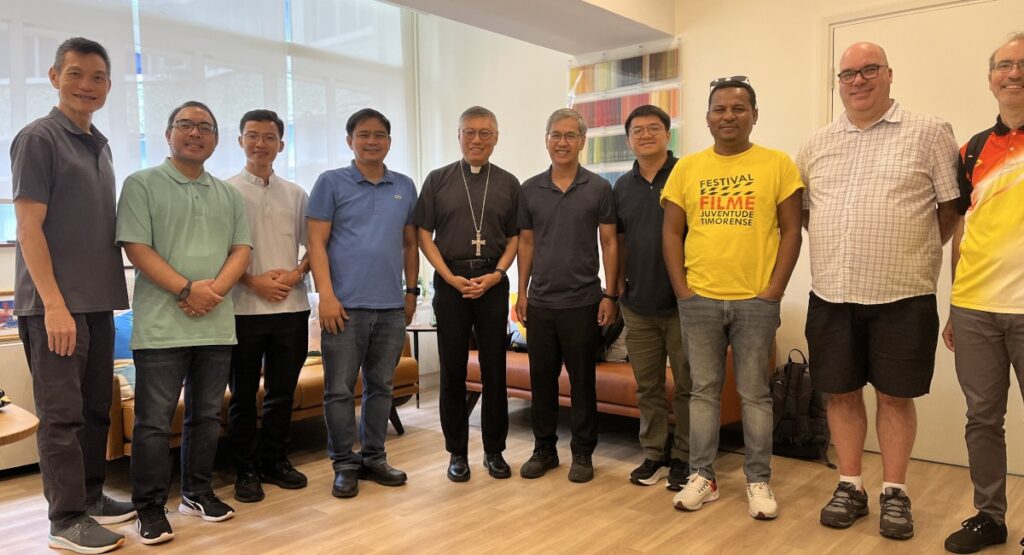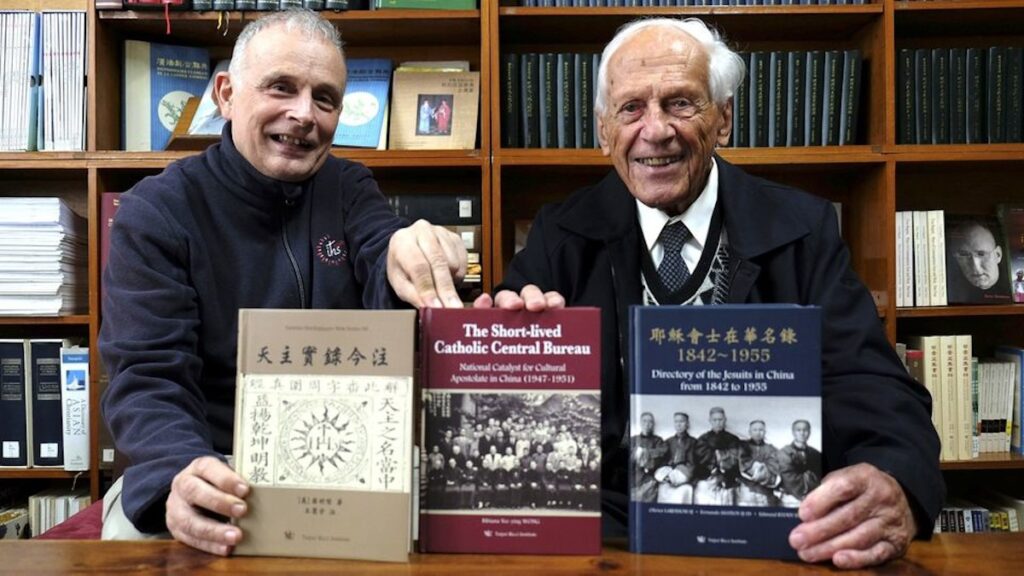Last March 24, Studio Audio Visual Puskat Yogyakarta launched a new film entitled Bethlehem Van Java. The file runs for 63 minutes and is about the history of Catholicism in Java, Indonesia (1896-1926). The writer and director of the film is a young Jesuit and staff at Puskat, Fr Murti Hadi.
This project was started in January 2006 and finished in March 2007 involving some experts in theology, history, anthropology and film production. About 50 foreign actors and actresses, 150 local artists and 50 film crew (mostly from Puskat) participated in the film production. The crew film and artists are from various religious denominations. The production was covered by Puskat, Missio Austria and local donors.
The launching took place at the Gadjah Mada University, Yogyakarta. It was attended by 600 people, including the Archbishop of Semarang Archdiocese, film producers from Jakarta, artists and film crew, lecturers, students, priests, nuns, parishioners from around Yogyakarta, and the new president of SIGNIS Indonesia. Some journalists from media agencies covered the event. This launching is a new strategy of Puskat to get closer with the audiences. It is part of marketing the values of the Kingdom.
The profit of the film distribution will be used for other audio-visual productions done by Puskat. An English version of this film is being prepared.


